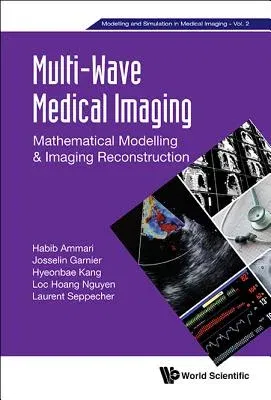Loc Hoang Nguyen
(Author)Multi-Wave Medical Imaging: Mathematical Modelling and Imaging ReconstructionHardcover, 8 May 2017

Qty
1
Turbo
Ships in 2 - 3 days
Only 3 left
Free Delivery
Cash on Delivery
15 Days
Free Returns
Secure Checkout

Part of Series
Modelling and Simulation in Medical Imaging
Print Length
688 pages
Language
English
Publisher
World Scientific Publishing Europe Ltd
Date Published
8 May 2017
ISBN-10
1786342243
ISBN-13
9781786342249
Description
Product Details
Book Format:
Hardcover
Country of Origin:
SG
Date Published:
8 May 2017
Dimensions:
23.11 x
15.49 x
2.54 cm
ISBN-10:
1786342243
ISBN-13:
9781786342249
Language:
English
Pages:
688
Publisher:
Weight:
907.18 gm